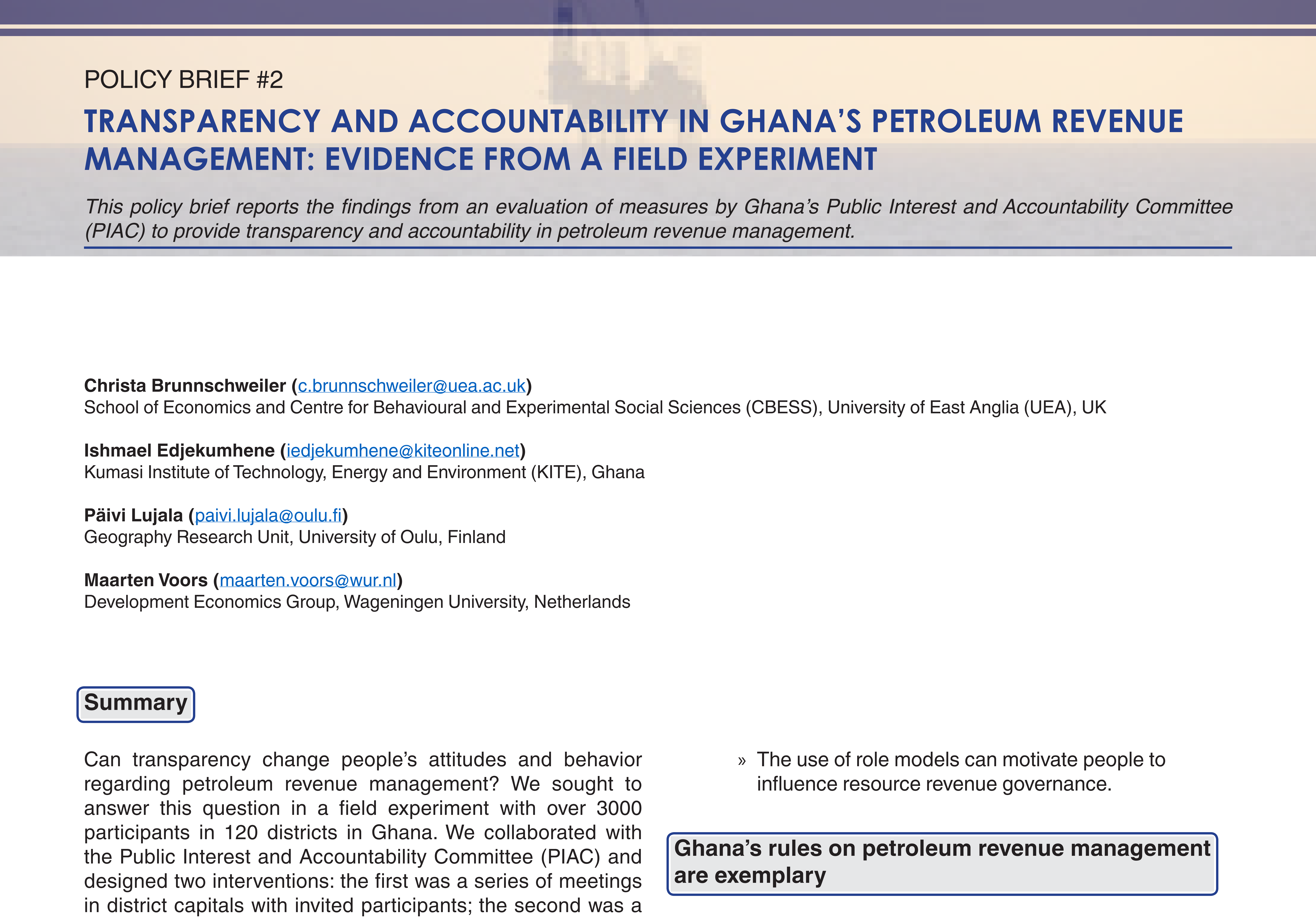Christa Brunnschweiler, Ishmael Edjekumhene, Päivi Lujala, and Marten Voors (2019).
This policy brief reports the findings from an evaluation of measures by Ghana’s Public Interest and Accountability Committee (PIAC) to provide transparency and accountability in petroleum revenue management. Can transparency change people’s attitudes and behavior regarding petroleum revenue management? We sought to answer this question in a field experiment with over 3000 participants in 120 districts in Ghana. We collaborated with the Public Interest and Accountability Committee (PIAC) and designed two interventions: the first was a series of meetings in district capitals with invited participants; the second was a series of voice and text messages (“ICT platform”), sent to all respondents in another set of districts. A third group of districts received both interventions; and the final control districts received no intervention.
Our key findings are that district-level meetings resulted in more knowledge and awareness of petroleum revenue management issues. However, the impact was limited to meeting participants, especially District Assembly and Unit Committee members, with limited spillovers to the wider population. The ICT platform
was more effective, improving knowledge and awareness levels among all categories of respondents. The ICT platform was also able to increase the willingness of all categories of stakeholders to demand accountability in future, while the PIAC meetings only increased demand for accountability among District Assembly members.






